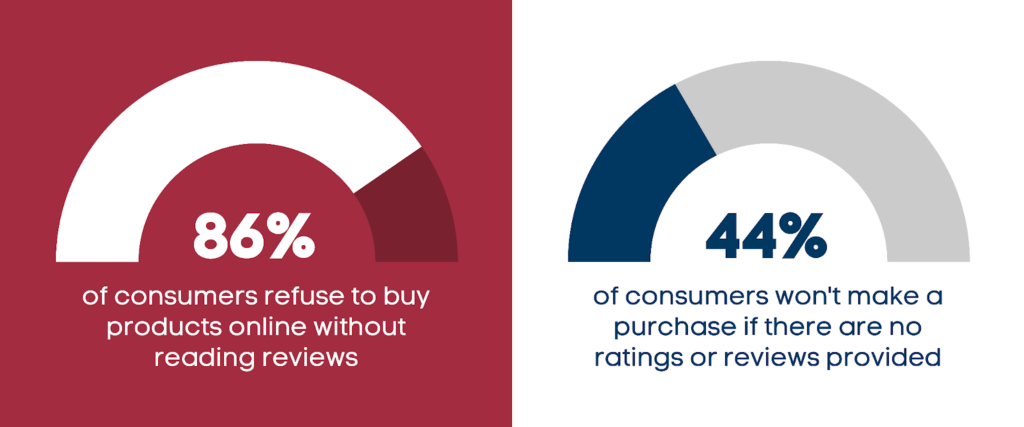In today’s digital marketplace, customer reviews play a critical role in the success of a business. Whether a business operates online or in a physical location, its reputation is shaped by the opinions of its customers. Customer reviews have become a powerful tool for business growth, influencing potential buyers, boosting brand credibility, and enhancing customer loyalty.
Google Reviews, Yelp & Trustpilot: The New Currency of Customer Trust

With the rise of e-commerce platforms, social media, and review websites such as Google Reviews, Yelp, and Trustpilot, customers now have more opportunities than ever to share their experiences. Positive reviews can increase a company’s sales and customer trust, while negative feedback, if managed correctly, can offer valuable insights for improvement.
The Power of Customer Reviews

1. Influence on Consumer Buying Decisions
One of the primary reasons businesses should pay attention to customer reviews is their strong influence on purchasing decisions. According to studies, over 92% of consumers read online reviews before making a purchase, and 88% of them trust online reviews as much as personal recommendations.

Source;- https://www.gmrwebteam.com/blog/how-online-reviews-influence-your-customers
When potential customers see positive reviews, they feel more confident in their buying decision. Reviews provide social proof, assuring buyers that they are making a smart choice. On the other hand, negative reviews can discourage potential buyers from proceeding with a purchase.
Key Takeaway
- Customer reviews act as a trust-building factor.
- Positive reviews boost confidence and sales.
- Negative reviews can drive potential customers away.
2. Building Brand Trust and Credibility
Trust is the foundation of any successful business, and customer reviews play a crucial role in building it. A business with numerous positive reviews is seen as reliable, while a company with no reviews or mostly negative feedback struggles to gain consumer trust.

For example, when customers search for a restaurant, they are likely to choose one with a high star rating and positive feedback rather than one with no reviews or a poor rating. The same principle applies to other industries, from e-commerce to service providers.
How Businesses Can Build Trust with Reviews
- Encourage satisfied customers to leave feedback.
- Respond to all reviews—both positive and negative—to show engagement.
- Address customer concerns transparently and professionally.
3. Enhancing SEO and Online Visibility

Source;- https://www.semrush.com/blog/seo-visibility
Customer reviews also play a vital role in search engine optimization (SEO). Google and other search engines consider reviews when ranking businesses in search results. A business with numerous positive reviews is more likely to appear at the top of local search rankings.
Additionally, reviews often contain keywords relevant to the business, which helps improve online visibility. For example, if a customer writes a review mentioning “best coffee shop in New York,” this phrase could help the coffee shop rank higher when someone searches for similar terms.
SEO Benefits of Customer Reviews
- Higher rankings on Google and review platforms.
- Increased website traffic from search results.
- Enhanced local SEO for businesses targeting specific locations.
4. Driving Higher Conversion Rates

Having reviews on a website or product page significantly increases conversion rates. When potential customers see positive testimonials, they are more likely to proceed with a purchase. Studies show that products with at least five reviews are 270% more likely to be purchased than those without reviews.
Furthermore, verified customer reviews provide an added layer of authenticity. Consumers trust reviews written by real users over promotional content created by the company itself.
Ways to Leverage Reviews for Higher Conversions
- Display customer reviews prominently on product pages.
- Use star ratings to highlight popular products.
- Showcase customer testimonials in marketing campaigns.
5. Improving Customer Engagement and Loyalty

Engaging with customers through reviews fosters a sense of community and loyalty. When businesses respond to reviews, it shows that they value customer feedback and care about their customers’ experiences.
Even responding to negative reviews positively impacts business growth. A company that listens to customer concerns and takes action to improve is likely to retain more customers in the long run.
Best Practices for Responding to Reviews
✅ Thank customers for positive reviews. A simple “Thank you for your kind words!” can strengthen customer relationships.
✅ Address negative feedback professionally. Apologize if necessary and offer solutions to resolve the issue.
✅ Encourage further engagement. Invite customers to return or provide additional feedback.
6. Gaining Competitive Advantage

In a competitive market, businesses with strong customer review strategies stand out. Consumers compare reviews before choosing between competitors, and companies with higher ratings tend to attract more customers.
For instance, two online stores selling similar products at similar prices may have different success rates simply because one has better reviews than the other. The store with more positive feedback will likely receive more traffic and sales.
Strategies to Gain a Competitive Edge
- Regularly request reviews from happy customers.
- Monitor competitors’ reviews to identify strengths and weaknesses.
- Offer exceptional customer service to generate positive feedback.
7. Identifying Business Strengths and Weaknesses

Customer reviews provide businesses with valuable insights into their products and services. By analyzing feedback, companies can identify what they are doing well and where improvements are needed.
For example, a restaurant that receives repeated complaints about slow service can use this feedback to make operational changes. Likewise, a product that is consistently praised for its durability can be marketed as a high-quality option.
How to Use Reviews for Business Growth
- Analyze common themes in customer feedback.
- Implement changes based on constructive criticism.
- Use positive reviews as testimonials for marketing.
8. Encouraging More Reviews for Business Growth

Many satisfied customers do not leave reviews simply because they are not asked. Encouraging more customers to leave feedback can significantly enhance a business’s reputation.
Effective Ways to Encourage Reviews
Send follow-up emails after a purchase, asking for a review.
Offer small incentives (discounts or loyalty points) in exchange for honest feedback.
Simplify the review process by providing direct links.
However, businesses should never buy fake reviews, as this can damage credibility and violate platform policies. Authentic reviews, whether positive or constructive, provide real value.
9. Managing Negative Reviews

No business is perfect, and negative reviews are inevitable. However, how a business handles negative feedback determines its reputation. A company that ignores or deletes negative reviews appears untrustworthy.
How to Handle Negative Reviews
- Stay calm and professional. Do not argue with customers.
- Acknowledge the issue. Apologize if necessary.
- Offer a solution. Provide a refund, exchange, or improvement.
- Follow up. Ensure the customer feels heard and valued.
Handling negative reviews with care can even turn unhappy customers into loyal ones.
10. Facilitating Continuous Improvement

Negative reviews, while often viewed unfavorably, provide critical insights into customer dissatisfaction. Addressing these concerns allows businesses to rectify issues, improve their offerings, and prevent future occurrences. This proactive approach not only enhances the customer experience but also demonstrates a commitment to excellence. Negative reviews can be helpful, as they provide valuable insights to help you improve.
11. Influencing Product Development

Customer feedback often highlights desired features or missing elements in a product or service. By paying attention to these suggestions, businesses can innovate and adapt their offerings to meet evolving consumer needs, thereby staying competitive in the market.
12. Mitigating the Impact of Negative Reviews

While positive reviews bolster a company’s image, negative reviews, if left unaddressed, can deter potential customers. However, when businesses respond promptly and constructively to negative feedback, they have the opportunity to turn dissatisfied customers into loyal ones. This approach showcases a company’s dedication to resolving issues and valuing customer input.
13. Complying with Regulatory Standards

In light of increasing concerns about fake reviews and deceptive practices, regulatory bodies are implementing stricter guidelines. For instance, the Federal Trade Commission (FTC) has introduced rules to penalize businesses engaging in such practices. Adhering to these regulations not only avoids legal repercussions but also maintains the integrity of customer feedback. The FTC has implemented a new rule to mitigate fake online reviews and deceptive social media clout, effective later this year.
Federal Trade Commission

14. Leveraging Reviews for Content Generation
Customer reviews can be repurposed as testimonials on websites, social media platforms, and marketing materials. This user-generated content adds authenticity to promotional efforts and provides real-life examples of customer satisfaction.
Conclusion
Customer reviews are a crucial element of Crazy Bunny’s business growth. They influence consumer decisions, build brand trust, improve SEO, and drive conversions. Additionally, reviews provide valuable insights and a competitive edge in the market.
To maximize the benefits of customer reviews, businesses should actively encourage feedback, engage with customers, and continuously improve their products and services based on customer input.
By embracing customer reviews as a strategic asset, businesses can enhance their reputation, attract more customers, and achieve long-term success.





